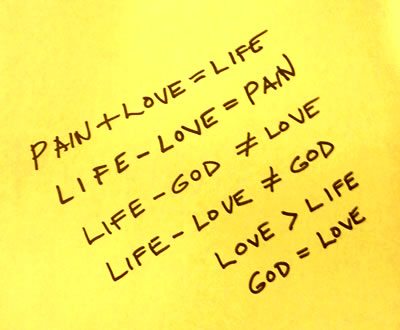 The other day I read an article by a woman who had some painful experiences as an adoptive mother and wife from a failed marriage. She explained that she and her husband had been unable to have children, and had consequently set out to adopt a child to fill the void in their family.
The other day I read an article by a woman who had some painful experiences as an adoptive mother and wife from a failed marriage. She explained that she and her husband had been unable to have children, and had consequently set out to adopt a child to fill the void in their family.
That was her first mistake, since that is a selfish reason, and therefore altogether the wrong reason to adopt, in my opinion. Nevertheless, I read on.
Their marriage was apparently no match for this strong-willed girl who had been previously hurt in many different ways. The child was eventually blamed for ruining her marriage, her biological child’s life, and her own life.
Her conclusion? Re-think your desire to adopt, because love, in fact, does not conquer all. Wow, I thought. What a stunning conclusion.
This was hard to take for many reasons, not the least of which was my passion for adoption as a way for Christians to serve “the least of these” in a hurting world. It also seemed like a full assault on God, who is the unwavering definition of love.
Like trying to solve an algebra equation by tweaking a known constant, this woman was making a common mistake—letting her fallible interpretation of life experiences change her conclusion about what should be a rock-solid presupposition: That love conquers all.
Since God is the very definition of love, I can rest assured that if I set out to express love, but things go awry, it’s not love’s fault. Love was not inadequate, ineffective, or inconsequential, because that would be to say that God is inadequate, ineffective, or inconsequential.
The pain she experienced was not a result of adopting a problem child. Many parents raise problem children just fine without adopting them. I believe her pain was the result of her own sixties-style, self-centered understanding of love.
When love appears to fail, it has to be our imperfect understanding or expression of it that failed, not love itself. We know this because Paul assures us in 1 Cor. 13:8 that love never fails, and “never” is an awfully big word.
In the grand equation of life, underestimating the power of love is just like fudging the numbers in an equation to get the answer that “seems” right. Instead, let’s make the love of God an immovable constant. When all of life’s variables are adjusted around this constant, the rest of the equation should fall into place.
Love is the solution to the problem of living in a fallen world. Our human attempts to express it may not fix all the consequences of sin—in fact, I guarantee they won’t—but we can rest assured that God’s eternal expression of it sure will. At least that gives us something to aspire to.
